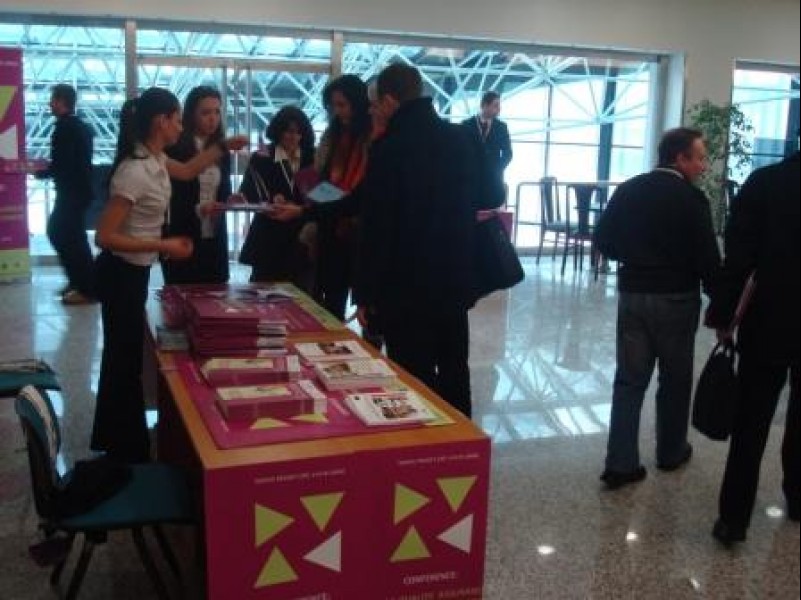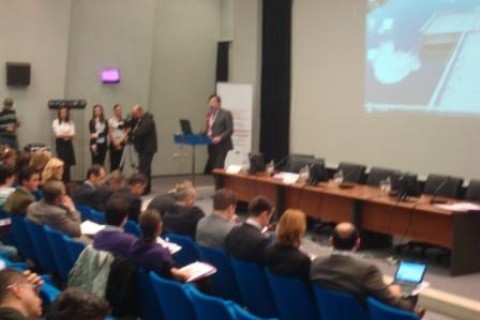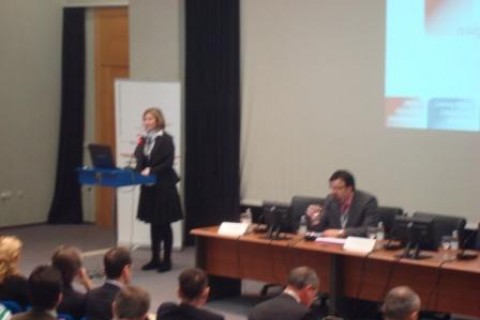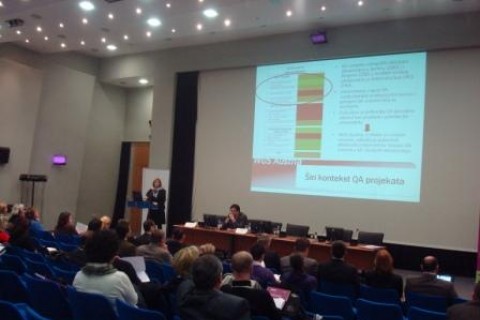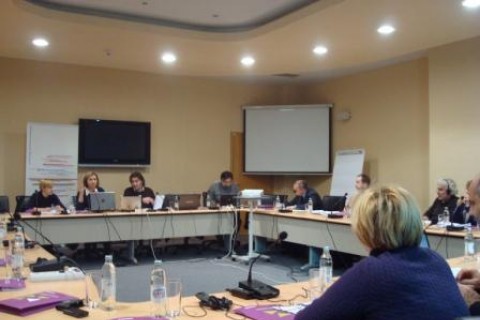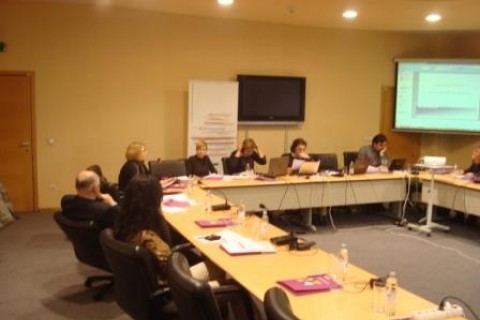Conference “From Quality Assurance to Strategy Development” successfully held in Sarajevo
Sarajevo. WUS Austria organized a Conference "From Quality Assurance to Strategy Development" on 28th and 29th January 2010 at UNITIC Business Center.
The Conference From Quality Assurance to Strategy Development was planned as the final activity within the two-and-half-year Tempus project “From Quality Assurance to Strategy Development”, implemented by WUS Austria in cooperation with the University of Graz, University of Girona and all 8 public universities in BiH. The overall aim of the project is to contribute to a coherent and far-reaching reform of higher education in BiH in accordance with the Bologna Process and in accordance with the society and market needs. In order for this objective to be achieved, universities in BiH need to develop modern, student-oriented strategies, which will pave the path towards the university's long-term goals. Owing to the fact that “one-for-all” model does not exist,each BiH University first needs to conduct a thorough analysis, i.e. assessment of its environment, operations, structure, and results so as to be able to customize and develop a proactive strategy in line with its needs and priorities.
The main aims of the Conference were to exchange experiences with regard to internal QA methodologies and modern university management, to present to the wider BiH and regional academic community all the project achievements and outcomes, and lessons learnt with a special focus on university strategies, and networking between local and regional university management and administration structures and relevant institutions/ organizations (e.g. QA Agencies).
The Conference was attended by over 80 participants. As foreseen in the project, the Conference participants were QA coordinators and management representatives from each BiH university. Furthermore, the Conference audience was widened to include Ministries of Education (state, entity and cantonal), international and local institutions/ organizations supporting higher education (Tempus Office, Austrian Development Cooperation, SUS BiH, GOPA etc.) and all other interested academic stakeholders.
Please find below a list of presentations:
WUS Austria support to quality assurance system development at BiH public universities, Nina Kovač, WUS Austria Project Manager
Tempus: Modernising higher education, Suad Muhibić, Head of Tempus Office Sarajevo
External quality assurance at higher education institutions: development and challenges, Nihad Fejzić, Director of the Agency for Higher Education Development and Quality Assurance BiH
Development of strategies at BiH universities, Haris Muhić, Director of SUS BiH
University of Banja Luka, dr. Simo Jokanović, Vice-rector for Teaching and Student Issues
Implemented activities of the project “From Quality Assurance to Strategy Development”, QA and future activities at the University of East Sarajevo, Nenad Marković, QA coordinator
University “Džemal Bijedić” of Mostar and future challenges, dr. Sead Pašić, Vice-rector and Alim Abazović, QA coordinator
Quality Assurance and Strategic Challenges at the University of Tuzla, dr. Edin Delić, Vice-rector
QA system at the University of Zenica – achievements in the project and experiences in implementing institutional self-evaluations and strategy development, dr. Darko Petković, Vice-rector and Ibrahim Plančić, QA coordinator
Integrative restructuring of universities and quality assurance, Stefan Dukiandjiev, GOPA Key Expert
Tempus: EU standards for accreditation of study programmes on BH universities, dr. Dejan Bokonjić, University of East Sarajevo
On the second day, 29th January 2010, a final meeting of the project consortium was held at the UNITIC Centre. The meeting was attended by representatives of BiH public universities, University of Graz and University of Girona.
*(The Agenda of the Conference and the Agenda of the final meeting of the project consortium, as well as the presentations can be downloaded by clicking on the hyperlink.)
WUS Austria prepared a questionnaire to assess satisfaction of the Conference participants in terms of the organisation, topics and lecturers. Based on the received feedback, 100% of participants judged the Conference as successful.

